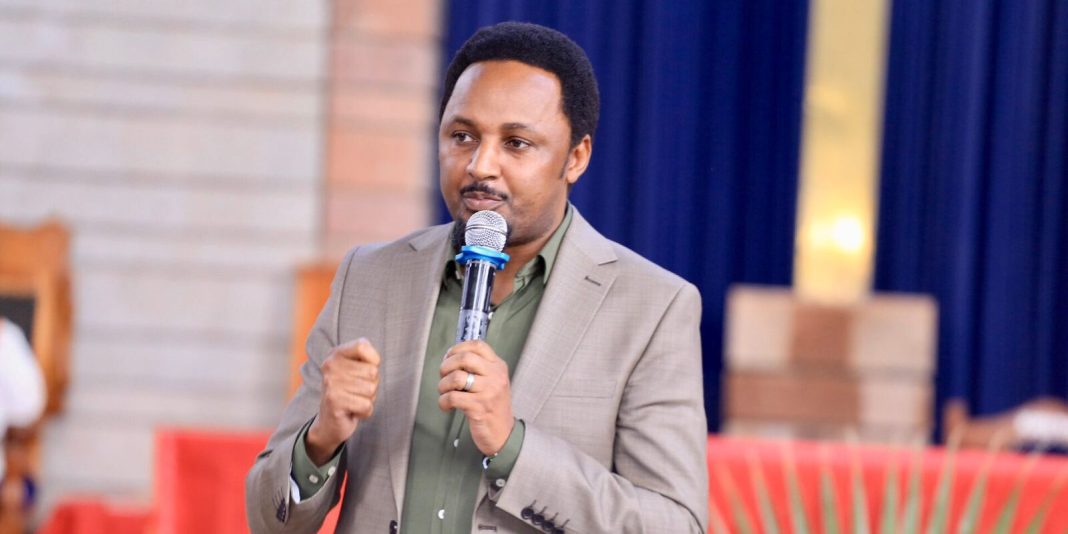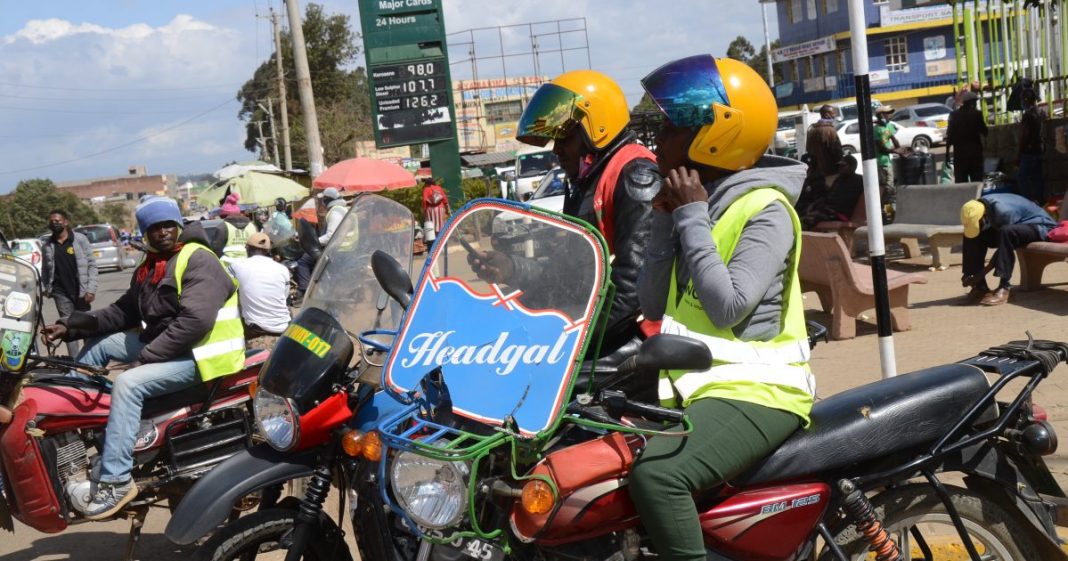The government has launched a nationwide training exercise targeting more than 400 county education trainers to prepare schools for the transition of Junior Secondary learners to senior school starting January 2026.
The retooling programme, spearheaded by the Ministry of Education and coordinated by the Centre for Mathematics, Science and Technology Education in Africa (CEMASTEA), seeks to equip education officers with the skills to guide schools through the new Competency-Based Curriculum (CBC) framework.
Speaking during a workshop at Egerton University’s Agriculture Resource Centre, Director General for Basic Education Elias Abdi said the trainers would cascade the knowledge to Heads of Departments (HoDs) who will play a key role in implementing the new curriculum at the senior school level.
Under the new structure, senior schools will offer three career pathways — Science, Technology, Engineering and Mathematics (STEM), Arts and Sports, and Social Sciences. Schools will either be classified as triple-pathway institutions offering all three or dual-pathway institutions offering STEM alongside one other pathway.
Abdi noted that approximately 60 percent of learners are expected to pursue the STEM track, 25 percent social sciences, and 15 percent arts and sports.
“The transition to senior school marks a significant milestone in Kenya’s education reform. It aligns learning with students’ abilities and career aspirations,” said Abdi, assuring Kenyans that the government is fully prepared for the Grade 10 rollout.
He acknowledged concerns over infrastructure, staffing, and financing but maintained that the government has developed a comprehensive programme to guide principals and school boards in implementing the senior school curriculum.
The training, themed “Enhancing the Capacity of STEM Heads of Departments to Manage Transition to Competency-Based Education,” is being conducted concurrently at Egerton University (Nakuru), CEMASTEA Headquarters (Nairobi), and Golf Hotel (Kakamega).
Facilitators have been drawn from CEMASTEA, the Teachers Service Commission (TSC), Kenya National Examinations Council (KNEC), Kenya Institute of Special Education (KISE), and county-level education trainers.
CEMASTEA Director for STEM Training Patrick Ogolla said the exercise builds on earlier sessions held in April and June for school principals. He emphasized that STEM education is vital for Kenya’s competitiveness in innovation, industrial growth, and technology advancement.
“Developing STEM literacy ensures our learners can adapt to emerging global challenges and create homegrown solutions,” Ogolla said.
He added that participants are being sensitized on Competency-Based Assessment (CBA), a continuous evaluation system designed to measure learners’ progress through practical skills, creativity, and innovation rather than rote memorization.
The assessments, Ogolla explained, will use multiple tools such as quizzes, projects, rubrics, and portfolios to cater to diverse learning needs and promote real-time feedback between teachers, parents, and learners.
TSC Director for Teacher Professional Management, Dr. Reuben Nthamburi Mugwuku, said the training was crucial in ensuring a seamless transition that upholds quality and inclusivity in the education system.
He urged teachers to embrace transformative teaching approaches and mentorship in preparing learners for the country’s industrial and knowledge-driven economy.
Dr. Mugwuku also linked the CBC reforms to global and continental goals, noting that STEM education supports Kenya’s alignment with the UN Sustainable Development Goals (SDGs) and Africa’s Agenda 2063 on innovation and skills development.
He said Kenya’s Sessional Paper No. 1 of 2019 identifies science and technology as key drivers of economic productivity and social progress.
“The success of this transition depends on teachers’ capacity to interpret the curriculum, integrate innovation in learning, and prepare our youth for future challenges,” he stated.
Abdi concluded by affirming that textbook distribution and student placement for Grade 10 will begin in December to ensure smooth admission in January 2026.







online casino that accepts paypal
References:
https://jobstaffs.com/employer/best-paypal-casinos-updated-2025/
paypal online casino
References:
https://chefstaffingsolutions.com/employer/paypal-casinos-in-the-uk-best-casinos-accepting-paypal-in-2025/
With a swag of deposit methods from plastic to
digital wallets, they’ve made sure that topping up your account is as easy as snagging a snag at a barbie.
A network of 98 distinguished software providers, ensuring variety and quality with heavy-hitters like Microgaming and Evolution Gaming bolstering their ranks.
And if you’re ever in a pickle, their customer service team is as reliable as a mate, available 24/7 via live chat to sort you
out. Powerhouses like Microgaming and Evolution guarantee a top-shelf spin every time.
If baccarat is your game, don’t miss this thorough
baccarat strategy guide to gain an edge.
The game library is well-curated and easy to browse, with over 9,000 pokies, 100+ crash games,
and 13 live casino providers (including Evolution and Pragmatic Play).
You’ll find over 8,000 pokies, 50 crash games, 150+ life-changing and must-drop jackpot pokies, six live casino platforms,
and much more. You’ll find over 7,500 pokies, a wide variety
of jackpots, 30 crash games and 8 live casino
platforms (including Evolution, OnAir, and Pragmatic).
The game selection at Vegaz is comprehensive,
including 12,000 pokies, 11 live casino platforms, 80 crash games and a ton of video pokers, scratch cards and video bingo.
Over 11,000 games are available, including 10,000 pokies, 40 crash games, and
9 platforms for live casino games.
References:
https://blackcoin.co/space-force-gambling-game/
When choosing a Casino AU platform, it’s always good to check
the basics first. It’s designed to get you playing fast, with AU$ banking and fast withdrawals once
you meet the terms. Clear wagering requirements are
in place, so you’ll know exactly how to turn your bonus funds into real cash.
It’s a simple way to double your balance and explore the game lobby without stretching your budget.
The SkyCrown mobile site works straight in your browser, whether it’s Chrome,
Safari, or another modern option. SkyCrown Casino
AU makes it easy to keep playing wherever you are.
While Sky Crown does not currently have dedicated apps
for Android and iOS, its mobile version works seamlessly through modern web browsers.
Australian players who love instant wins have all their dreams come true here.
The selection of table games at Sky Crown is far more extensive
and varied. Players can look forward to HD-quality video streams, skilled croupiers, and an exhilarating gaming experience.
Free simulators help understand their features, bonuses, and potential winnings.
In particular, you can contact the casino assistants via Live
Chat (available round the clock), on-site message form,
and email ([email protected]). The operator offers its services
under a license, yet it doesn’t disclose the number. Since the SkyCrown app is a PWA, its updates are made automatically without any
user learning about it beforehand. The latest app version applies stronger
encryption and secure login flows. This means whichever slot, table game, or whatever game is introduced by these brands ensures fair, unbiased results.
References:
https://blackcoin.co/circus-circus-las-vegas-in-depth-guide/
Gemeinsam mit dem 2007 gebauten Schwesterhotel The Palazzo verfügt das Venetian Resort über 7.128 Zimmer und war damit zwischen 2008 und 2015
der größte Hotelkomplex der Welt. Stattdessen setzt das Haus gemeinsam mit dem Schwesterhotel Encore auf Luxus.
Ebenso spektakulär wie die Wasserspiele ist das Innenleben des Casinos.
Das Bellagio wurde buchstäblich auf den Trümmern des einst berühmten, Mitte der 1950er-Jahre gebauten Casinos Dunes errichtet, das
mit den modernen Luxusresorts der Stadt nicht länger mithalten konnte.
Viele Casinomarken arbeiten außerdem mit uns zusammen, um exklusive
Bonusaktionen anzubieten, die Sie sonst nirgendwo finden. Wir beanspruchen all diese Boni selbst, um sicherzustellen, dass wir Ihnen ein faires Angebot ohne Hintertürchen und Kleingedrucktes anbieten. Dazu gehören unter
anderem Boni ohne Einzahlung, Cashback, Match-Boni und Freispiele.
Von klassischen Spielautomaten über Dutzende von Tischspielen bis hin zu
einem erstklassigen Sportwettenbereich findest du hier alles, was das Herz
begehrt. Wenn Sie spätabends einen Blick in diesen Raum werfen, können Sie vielleicht
Profis sehen, die um Millionen spielen. Wir bieten verschiedene Tools
und Ressourcen, um sicherzustellen, dass unsere Spieler ein sicheres und kontrolliertes Spielerlebnis haben.
Vulkan Vegas bietet eine Vielzahl von Boni und Promotionen, die
Ihr Spielerlebnis noch aufregender machen. Spielen Sie Ihre Lieblingsspiele von überall
mit der Vulkan Vegas Mobile App.